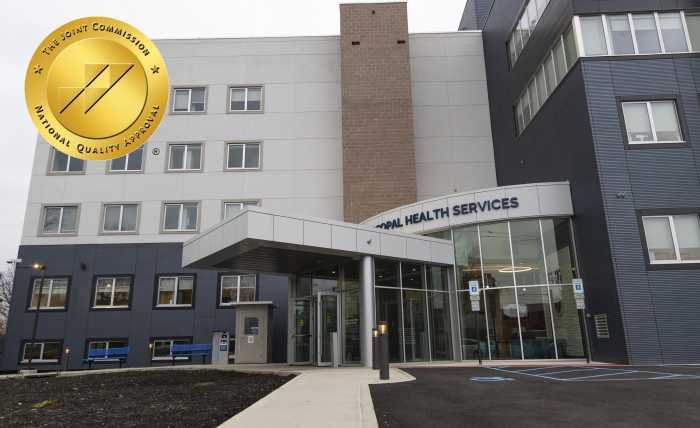By Stephen Witt
The Brooklyn Hospital Center (BHC) is off life support and getting stronger every day. That was the word hospital officials gave in a special presentation before the Community Board 2 regular meeting at Borough Hall last week. The Hospital, located at 121 DeKalb Avenue, serves Fort Greene, Bushwick, Downtown Brooklyn, Williamsburg, Crown Heights and Bedford-Stuyvesant. The facility, which has the Flatbush-based Caledonian Health Center at 100 Parkside Avenue among its affiliates, filed for Chapter 11 bankruptcy protection in September 2005. “We are continuing to provide quality care to Brooklyn,” said Robert Cooper, BHC director of community outreach. “The matter of the bankruptcy was just a way to relieve ourselves from historical debt and this way we can push forward and provide quality of care we provided since 1845 when we were the first hospital in Brooklyn,” he added. Cooper came to the presentation with Dr. John Carroll, BHC chief medical officer, who stated the hospital has enjoyed a surge of qualified nurses, despite shortages of nurses at many hospitals. Among these nurses is BHC’s new Chief Nursing Officer and Senior Vice President Opal Sinclair-Chung, who came from the recently closed St. Mary’s Hospital. The 483-bed facility also has expanded and improved cardiology and surgery departments. “We are now doing some neurosurgery and bariatricsurgery for obese people,” said Cooper, adding the latter involves gastrointestinal bypass surgery. The BHC additionally offers walk-in clinics for prenatal and infant care through state-run programs as well as services to people with no medical insurance on a sliding payment scale, Cooper said. “We also have sickle cell and hematology/oncology programs as well as a resource center run by the American Cancer Society, where people with cancer can learn about the illness and have support groups,” said Cooper. Cooper said perhaps most important is the BHC offers comprehensive diabetes services. “This is a critical service to the community because of the rampart nature of diabetes and its complications, which could affect the eyes, the circulatory system and the feet,” Cooper said. As for the Caledonian Health Center, which closed its in-patient care in 2002 and serves the Flatbush and East Flatbush community, Cooper said the site continues to provide numerous services. “We have a large dental clinic there as well family healthy services including podiatry and gynecology,” said Cooper. “We’ve been here [in Brooklyn] 166 years and we will always be there for you,” Cooper said.


































